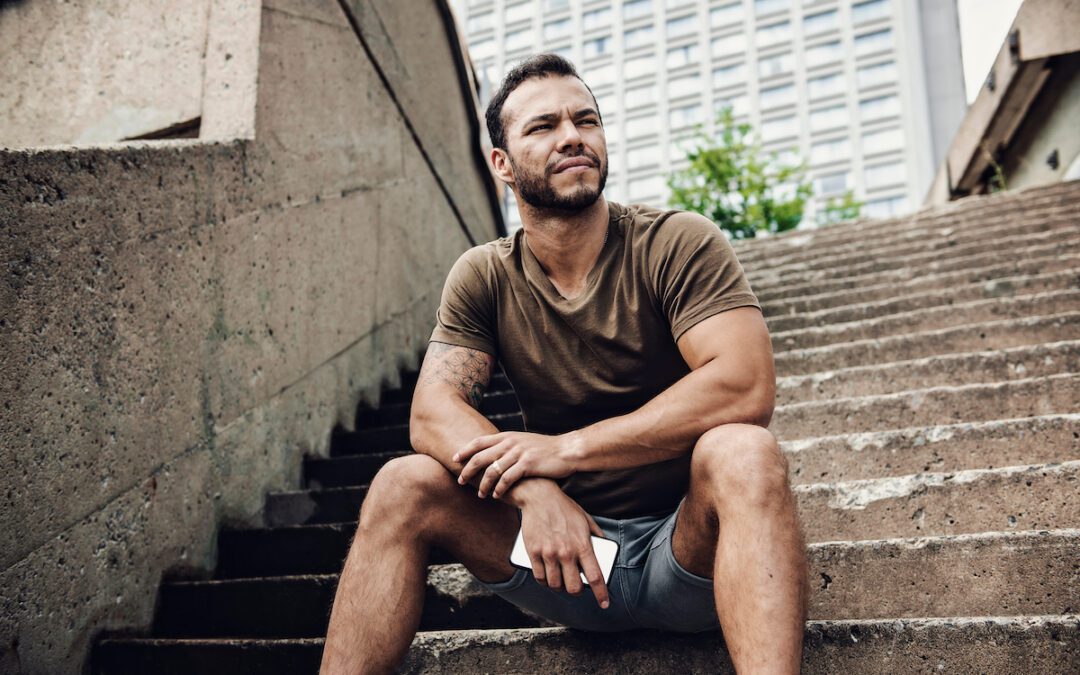
Feeling Insecure in Your Relationship? Roots & Solutions
Breaking Free from Doubt: Understanding and Overcoming Relationship Insecurity

Do you often find yourself questioning your partner’s love, even when things are going well? Does a delayed text message send you into a spiral of worry? If you constantly feel like you are waiting for the other shoe to drop, you are likely grappling with relationship insecurity.
You are not alone in this feeling. Insecurity is a quiet struggle that affects countless individuals, regardless of how long they have been with their partner. It acts like a fog, obscuring the love and connection that actually exists, replacing it with fear and doubt.
At Maplewood Counseling, we understand how exhausting it is to live in a state of constant uncertainty. The good news is that insecurity does not have to be a permanent fixture in your life. By understanding where these feelings come from and learning practical tools to manage them, you can build a relationship defined by trust, confidence, and deep connection.
What Does Relationship Insecurity Look Like?
Insecurity isn’t just “being jealous.” It manifests in many ways, some loud and some subtle. It is the internal voice that whispers, “I’m not good enough,” or “They’re going to leave me.”
In a relationship, insecurity often looks like:
- Constant Need for Reassurance: Asking “Do you love me?” or “Are we okay?” multiple times a day.
- Overanalyzing Interactions: Reading into tone of voice, body language, or text response times as signs of rejection.
- Jealousy and possessiveness: Feeling threatened by your partner’s friends, coworkers, or even their hobbies.
- Snooping: Checking phones or emails out of a fear of betrayal.
- Self-Sabotage: Picking fights or pushing your partner away to test their commitment.
Recognizing these behaviors is the first step toward change. These actions are usually defense mechanisms—ways we try to protect ourselves from getting hurt—but ironically, they often create the very distance we fear.
Uncovering the Root Causes of Insecurity
Insecurity rarely springs up out of nowhere. It usually has deep roots in our past experiences and internal beliefs. Understanding the “why” can help you stop blaming yourself and start healing.
1. Past Relationship Trauma
If you have been cheated on, lied to, or suddenly abandoned in a past relationship, your brain is wired to look for danger. You might find yourself projecting old hurts onto your current partner, expecting history to repeat itself even if your current partner has given you no reason to doubt them.
2. Childhood Attachment Styles
Our earliest bonds with caregivers shape how we view love. If your caregivers were inconsistent or emotionally unavailable, you may have developed an anxious attachment style. This can leave you feeling like love is fragile and needs to be constantly earned or guarded.
3. Low Self-Esteem
When you don’t feel good about yourself, it is hard to believe that someone else does. You might worry that once your partner “really” knows you, they will leave. This internal struggle often requires working on your own self-worth, perhaps through individual counseling or self-esteem resources, to realize you are worthy of love just as you are.
4. The Comparison Trap
In the age of social media, it is easy to fall into the trap of comparing your relationship to the “highlight reels” of others. Seeing curated images of perfect couples can make normal relationship ups and downs feel like failures, fueling feelings of inadequacy.
The Toll Insecurity Takes on Love
Unchecked insecurity is heavy baggage for a relationship to carry. Over time, it erodes the foundation of trust and intimacy you are trying to build.
- Emotional Exhaustion: Constant worry is draining for you, and constant reassurance is draining for your partner.
- Communication Breakdown: Instead of expressing needs clearly (“I feel lonely”), insecurity often comes out as accusation (“You never spend time with me”).
- Loss of Intimacy: It is hard to be vulnerable and close when you are guarded and fearful.
- Self-Fulfilling Prophecy: Sadly, pushing a partner away out of fear of abandonment can sometimes lead to the very breakup you were trying to prevent.
Actionable Strategies to Overcome Insecurity
Overcoming insecurity is a journey, but it is entirely possible. It requires a mix of self-reflection, honest communication, and sometimes professional support. Here are practical steps you can take today.
1. Identify Your Triggers
Become a detective of your own emotions. When anxiety spikes, pause and ask: What just happened? Did your partner sigh? Did they look at their phone? Identifying specific triggers helps you separate the present reality from past fears.
2. Challenge Your Inner Critic
Your thoughts are not facts. When your brain says, “They didn’t text back because they are losing interest,” challenge that thought. Ask yourself: Is there another explanation? Maybe they are just busy at work. Understanding anxiety and how it distorts thinking can be incredibly helpful here.
3. Communicate Your Feelings, Not Your Fears
Instead of acting out (getting quiet or picking a fight), try being vulnerable. Say, “I’m feeling a little insecure right now and could use a hug,” rather than, “Why are you ignoring me?” Vulnerability invites connection; accusation invites defense.
4. Build a Life Outside Your Relationship
One of the best antidotes to insecurity is independence. When your entire sense of happiness relies on your partner, the stakes feel terrifyingly high. reconnect with your own hobbies, friends, and goals. Remembering who you are outside of the relationship builds confidence.
5. Focus on the Facts
Make a list of the ways your partner shows they care. Do they make you coffee in the morning? Do they listen when you’ve had a bad day? When doubt creeps in, review the evidence of their love.
When to Seek Professional Support
Sometimes, insecurity is too deep to navigate alone. If your fears are affecting your daily life, causing panic attacks, or leading to controlling behaviors, it may be time to seek help.
Therapy offers a safe space to process past trauma and learn healthier ways of relating. A therapist can help you:
- Unpack the origins of your insecurity.
- Develop tools to self-soothe when triggered.
- Improve communication skills with your partner.
At Maplewood Counseling, we provide inclusive, compassionate care for individuals and couples. We believe that everyone deserves to feel safe and secure in love.
Frequently Asked Questions (FAQs) About Relationship Insecurity
Q: Is it normal to feel insecure in a relationship?
A: Yes, mild insecurity is a very common human experience. Everyone has moments of doubt. It becomes a problem when it is chronic, overwhelming, and starts to dictate your behavior or damage the relationship.
Q: Can insecurity destroy a relationship?
A: If left unaddressed, yes. Chronic insecurity can lead to controlling behaviors, constant conflict, and emotional burnout for both partners. However, addressing it openly can actually strengthen your bond by building deeper trust.
Q: How do I tell my partner I feel insecure without sounding needy?
A: Focus on “I” statements and own your feelings. Instead of “You make me feel insecure when you do X,” try “I’ve been struggling with some insecurity lately, and it helps me when we do X.” This frames it as a personal challenge you are sharing, rather than a failing on their part.
Q: Can therapy really help with jealousy?
A: Absolutely. Jealousy is often a symptom of underlying insecurity or fear. Therapy helps you get to the root of that fear and gives you tools to manage the emotion so you don’t have to act on it destructively.
Q: My partner is the insecure one. How can I help?
A: Be patient and consistent. Offer reassurance when they ask, but also encourage them to self-soothe. Maintain healthy boundaries—you can support them, but you cannot “fix” their internal feelings for them. Suggesting couples counseling can be a great way to work through it together.
Q: Is insecurity a sign we aren’t compatible?
A: Not necessarily. Insecurity is often an internal issue rather than a relationship issue. However, if your partner is actively doing things to make you feel unsafe (lying, hiding things, being critical), then the insecurity is a valid response to an unhealthy dynamic.
Take the First Step Toward Confidence
You don’t have to let fear run your relationship. Imagine waking up without that heavy weight of worry in your chest. Imagine trusting your partner—and yourself—completely.
It is possible to transform insecurity into confidence. If you are ready to do the work, we are here to walk that path with you.
Get in Touch today to schedule a session. Let’s build a relationship where you feel safe, seen, and secure.
Helpful Resources
- Individual Therapy: Personalized support for managing depression and stress.
- Understanding Anxiety: Learn how therapy can help manage anxiety.
- Grief Counseling: Support for processing loss and navigating grief.
- Guide to Self-Esteem: Build confidence and self-worth.
- Trauma-Informed Therapy: Support for Couples healing from past trauma.









